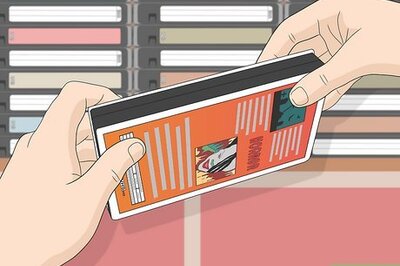
views
London: Trained dogs are capable of finding bombs, people and other objects with the help of a handler. Now American scientists have developed a new system which could turn canines into remotely guided 'super dogs'
that can take on dangerous tasks.
Researchers at the Auburn University in the US, who were behind the amazing innovation, said their technology could enhance the abilities of sniffer dogs to take on dangerous situations.
It could also change the way guide dogs are able to assist their owners by finding the scientifically safest way to negotiate journeys, the researchers said.
David M Bevly, an associate professor of mechanical engineering at Auburn, led a team who sought an alternative to the electrode implants used in previous remote guidance research.
They have now developed a custom vest fitted with GPS, spatial sensors, a processor and a radio modem which can be accessed wirelessly.
Through the emission of vibrations on the dogs left or right side, it can be directed through the tightest of gaps without the need for a handler nearby.
The team tested the harness at the university's Canine Detection Research Institute, with a trained yellow Labrador named Major taking on a series of navigational tests, the Daily Mail reported.
Results of their trial confirmed the impressive success rate of the new remote guidance system, with Major accurately following computer-issued directions 80 per cent of the time.
Professor Bevly now plans to test the harness over longer distances and believes it could have implication for drug and bomb detection operations.
"If I'm trying to locate drugs, I don't necessarily want the cartel know that I'm snooping around," he explained. "Maybe the dog is a little less noticeable," he said.
Using the new technology, the scientist said, a single handler could guide several dogs through inspecting an entire airport and the military could also employ the harness to direct medical aid to at-risk troops.
"You could operate in potentially any setting where you didn't have to have a handler nearby," said Alan Poling, a professor of psychology at Western Michigan University.
"It increases the operational capacities." The findings of the new research were published in the Personal Ubiquitous Computing journal.




















Comments
0 comment